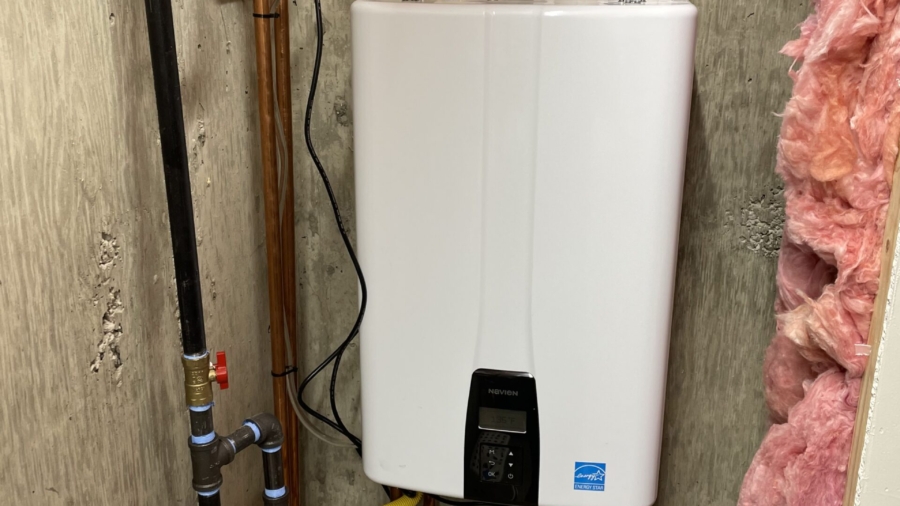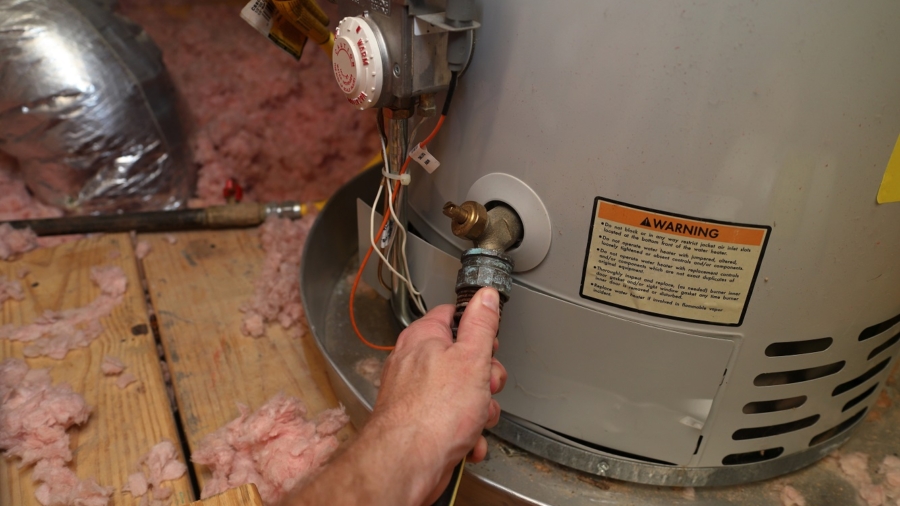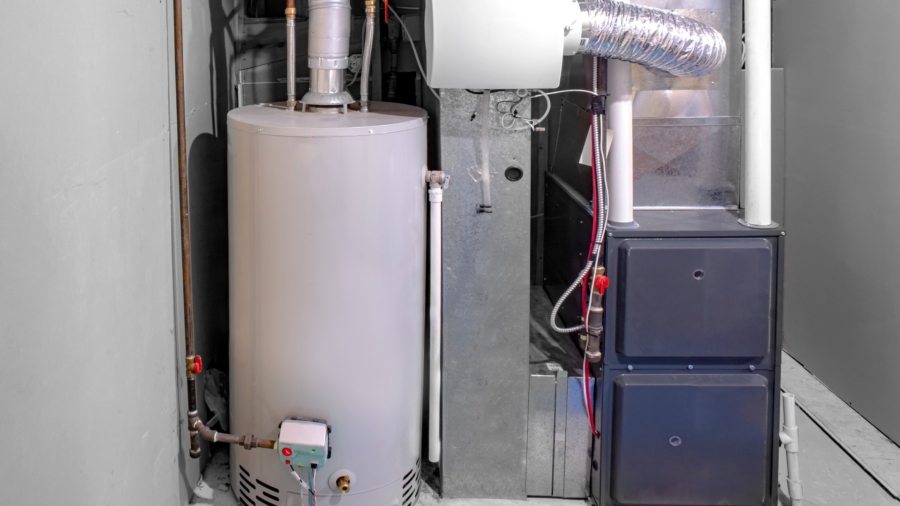The Importance of Water Heaters in Everyday Life
Water heaters play a crucial role in everyday life by providing hot water for various household tasks. From bathing and washing dishes to doing laundry, hot water is essential for maintaining cleanliness and comfort. Traditional water heaters work by continuously heating a standing supply of water in a tank, ensuring a ready supply of hot water when needed. On the other hand, tankless water heaters heat water on demand, saving energy and space.
When replacing a water heater, several key considerations come into play. The gallon capacity determines the amount of hot water the heater can provide, while the recovery rate indicates how quickly it can replenish hot water. Dimensions are important to ensure the heater fits in the designated space, and energy efficiency ratings help save on utility costs.
Factors Affecting the Lifespan of a Water Heater
Water heaters are essential appliances in many households, providing hot water for various needs. However, the longevity of a water heater can be affected by several factors. Understanding these factors can help homeowners prolong the lifespan of their water heaters and avoid unexpected breakdowns and costly replacements. From the type and quality of the water heater to maintenance, usage patterns, and water quality, several key factors play a role in determining how long a water heater will last. By taking these factors into account, homeowners can make informed decisions to ensure their water heater remains functional for as long as possible.
Types of Water Heaters
There are two main types of water heaters: conventional tank water heaters and tankless water heaters.
Conventional tank water heaters work by heating and storing water in a large tank. The water is kept hot and ready for use at all times. These water heaters typically last around 10-15 years.
On the other hand, tankless water heaters heat water directly without the use of a storage tank. When a hot water tap is turned on, cold water travels through a pipe into the unit where it is heated. Tankless water heaters are more energy-efficient and can last up to 20 years with proper maintenance.
The power sources for conventional tank water heaters can be gas or electricity. Gas water heaters use a burner to heat the water, while electric water heaters use electric resistance coils. Tankless water heaters also have the option of using gas or electricity to heat the water as it passes through the unit.
The Impact of Hard Water on the Lifespan of a Water Heater
Hard water, which contains high levels of minerals like calcium and magnesium, can have a significant impact on the lifespan of a water heater. The minerals in hard water can accumulate and form scale buildup inside the tank and on heating elements, reducing the efficiency of the heater over time. This can lead to increased energy consumption, higher utility bills, and ultimately a shorter lifespan for the water heater.
In addition, scale buildup can also lead to corrosion and leaks, further reducing the heater’s longevity. Understanding the impact of hard water on water heaters is important for homeowners and property managers, as implementing proper maintenance and addressing hard water issues can help extend the lifespan of the water heater and save on costly repairs or premature replacement.
Traditional Tank Water Heaters
Traditional tank water heaters work by heating and storing water in a large insulated tank. These usually have a capacity of 20 to 80 gallons, depending on the size of the household. They are typically powered by gas or electricity, and the heating process involves a heating element or a burner that heats the water to a set temperature.
One advantage of traditional tank water heaters is their relatively low upfront cost compared to other types of water heaters. However, they are less energy-efficient, as they constantly heat and maintain the temperature of the water in the tank, leading to higher energy bills. Additionally, traditional tank water heaters have a lifespan of around 10-15 years, and they may require regular maintenance to prevent corrosion and sediment buildup.
Factors that can affect the lifespan of a traditional tank water heater include the size of the household and their hot water usage, as well as the quality of the water and the frequency of maintenance. Larger families and hard water can lead to increased wear and tear on the heater, potentially shortening its lifespan. Regular maintenance and water softening can help prolong the life of a traditional tank water heater.
Average Lifespan of Traditional Tank Water Heaters
The average lifespan of a traditional tank water heater can vary based on the type and maintenance requirements. Typically, a traditional tank water heater can last between 10 to 15 years if properly maintained. The lifespan can be extended with regular maintenance such as flushing the tank, checking the anode rod, and addressing any sediment buildup.
The anode rod plays a crucial role in protecting the interior lining of the water heater. Made of aluminum, magnesium, or zinc, the anode rod sacrifices itself to prevent corrosion of the tank lining by attracting corrosive elements. Over time, corrosion can weaken the tank and ultimately lead to leaks, reducing the lifespan of the water heater.
Several factors contribute to the lifespan of a tank water heater, including the quality of installation, water quality, usage patterns, and maintenance. It’s important to check the warranty for accurate timelines, as some models may have longer or shorter lifespans depending on the brand and type.
Tankless Water Heaters
Tankless water heaters, also known as on-demand water heaters, operate by heating water on-demand as it flows through the unit. These systems are generally powered by electricity or gas, and the heating process is triggered when a hot water tap is turned on. The absence of a storage tank eliminates the standby heat loss present in traditional tank heaters, making tankless systems more energy-efficient.
One significant advantage of tankless water heaters is their energy efficiency, leading to potential cost savings on utility bills over time. Since they only heat water as it is needed, there is no continuous energy consumption to maintain a set temperature in a storage tank. Tankless heaters are also known for their space-saving design, as they are significantly smaller than traditional tank water heaters.
The lifespan of tankless water heaters is typically longer than that of traditional tanks, often exceeding 20 years. However, the upfront cost of tankless systems is generally higher. Despite the initial investment, homeowners may find the long-term energy savings and extended lifespan economically beneficial.
Average Lifespan of Tankless Water Heaters
The average lifespan of a tankless water heater can be influenced by several factors. Proper maintenance, such as regular descaling and flushing, can help to prolong its lifespan. Additionally, limiting continuous use and ensuring it is properly sized for the household’s hot water demands can also contribute to its longevity.
With proper care and maintenance, tankless water heaters can last up to 25 years. This includes regularly checking for and addressing any potential issues, such as corrosion, which can impact the unit’s lifespan. Tankless water heaters are designed to be more durable than traditional water heaters, as they do not store water, which reduces the risk of corrosion. Proper installation and ventilation are also important factors in ensuring the unit’s long-term performance.
However, potential issues such as corrosion can arise over time and impact the lifespan of the unit. If not addressed, corrosion can lead to leaks and other malfunctions that can significantly reduce the lifespan of the water heater. Therefore, it is essential to regularly inspect and maintain the unit to prevent any issues that could impact its longevity.
Regular Maintenance Tips to Extend the Lifespan of a Water Heater
Regular maintenance is crucial for extending the lifespan of a water heater. To keep your water heater in top condition, it is important to follow these maintenance tips. First, it is recommended to drain the water heater twice a year to remove sediment buildup that can cause corrosion and reduce efficiency. This can be done by attaching a hose to the drain valve and allowing the water to flow out until it runs clear.
Additionally, testing the pressure relief valve is important to ensure it is functioning properly and to prevent potential overheating and pressure buildup. It is also advised to keep the temperature of the water heater at 120 degrees Fahrenheit to prevent energy waste and reduce the risk of scalding.
For gas water heaters, it is essential to clean the air screen regularly to prevent blockage and ensure proper ventilation. By following these maintenance tips, you can prolong the lifespan of your water heater, maintain its efficiency, and prevent potential issues in the future. Regular maintenance not only extends the lifespan of your water heater but also ensures that it continues to operate safely and effectively.
Professional Plumber Services for Maintenance Checks
Hiring a professional plumber for routine water heater maintenance checks has numerous benefits. Professional plumbers have the expertise to identify warning signs of potential issues with your water heater, ensuring that any problems are addressed before they turn into costly repairs. They are also trained to complete specific maintenance tasks, such as flushing the tank to remove sediment buildup, testing the pressure relief valve, and inspecting the anode rod for corrosion.
It is crucial to hire a plumber familiar with your specific water heater type and model, as different types of water heaters have varying maintenance requirements. By doing so, you can be confident that your plumber will provide proper care and maintenance tailored to your specific unit, ensuring the longevity and smooth functionality of your water heater.
Christopher’s Heating & Cooling: Your Trusted Water Heater Experts
With a stellar reputation for excellence in the industry, Christopher’s Heating and Cooling is your go-to partner for water heater repair, maintenance, and installation. Our team of skilled technicians is committed to providing top-notch service, ensuring your water heater operates at peak performance year-round. Whether it’s a sudden breakdown, routine maintenance, or a brand-new installation, we’ve got you covered.
Christopher’s Heating and Cooling takes pride in delivering prompt, professional, and cost-effective solutions tailored to your specific requirements. Don’t let a malfunctioning water heater disrupt your comfort – reach out to Christopher’s Heating and Cooling today and experience unparalleled expertise in heating and cooling solutions. Your satisfaction is our priority, and we guarantee a warm and worry-free home environment.






